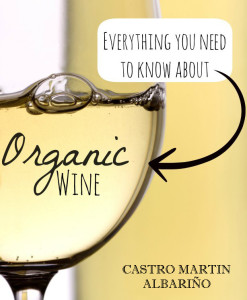Biodynamic, organic or sustainable?
March 7th, 2016 | Technical
[:en] Biodynamic, organic or sustainable? What’s the difference? This is a question that causes quite a few headaches, not only for the wine industry in general, but also, more importantly, for the poor confused consumer buying the finished wine. It is also one of the questions that we are most frequently asked by our own importers and customers, and it is a question that we always answer truthfully (even when we know that being economical with the truth might help to widen our potential consumer base).
Biodynamic, organic or sustainable? What’s the difference? This is a question that causes quite a few headaches, not only for the wine industry in general, but also, more importantly, for the poor confused consumer buying the finished wine. It is also one of the questions that we are most frequently asked by our own importers and customers, and it is a question that we always answer truthfully (even when we know that being economical with the truth might help to widen our potential consumer base).
By far the most complicated to achieve is biodynamic, and for most producers in Rias Baixas is an unattainable status, mostly owing to the damp conditions that we endure in this corner of Spain. To be fully biodynamic doesn’t just mean farming grapes without chemicals, but actually treats the vineyard as an ecosystem, taking into account astrological influences and lunar cycles etc. A true biodynamic wine is also made without any of the common manipulations such as yeast additions or acidity adjustments. Just one obvious reason why Rias Baixas cannot really produce biodynamic wine is because albariño’s naturally occurring yeast flora, by itself, simply cannot sustain a complete alcoholic fermentation.
In the category of organic, there are two types of wine. Those made from organically grown grapes that don’t use any synthetic additives or treatments, or the higher level of completely ‘organic wine’ that uses organic grapes but also doesn’t add sulphites to the wine (although it can include any naturally occurring sulphites).
Sustainable wine (such as our own Castro Martin wines), are made using a range of practices that are not only ecologically sound, but also economically viable and socially responsible. We adopt many of the practices that will be used in organic or biodynamic farming but have a little flexibility to include practices that suit our individual needs. Clearly, we are not going to sit back and watch our fruit rot on the vines if we can take steps to prevent it from happening….. Sustainability also means that we focus on things like water and energy conservation, as well as the use of renewable resources.
As far as selecting your wine is concerned, the simple rule is – if in doubt, read the label![:es] Biodynamic, organic or sustainable? What’s the difference? This is a question that causes quite a few headaches, not only for the wine industry in general, but also, more importantly, for the poor confused consumer buying the finished wine. It is also one of the questions that we are most frequently asked by our own importers and customers, and it is a question that we always answer truthfully (even when we know that being economical with the truth might help to widen our potential consumer base).
Biodynamic, organic or sustainable? What’s the difference? This is a question that causes quite a few headaches, not only for the wine industry in general, but also, more importantly, for the poor confused consumer buying the finished wine. It is also one of the questions that we are most frequently asked by our own importers and customers, and it is a question that we always answer truthfully (even when we know that being economical with the truth might help to widen our potential consumer base).
By far the most complicated to achieve is biodynamic, and for most producers in Rias Baixas is an unattainable status, mostly owing to the damp conditions that we endure in this corner of Spain. To be fully biodynamic doesn’t just mean farming grapes without chemicals, but actually treats the vineyard as an ecosystem, taking into account astrological influences and lunar cycles etc. A true biodynamic wine is also made without any of the common manipulations such as yeast additions or acidity adjustments. Just one obvious reason why Rias Baixas cannot really produce biodynamic wine is because albariño’s naturally occurring yeast flora, by itself, simply cannot sustain a complete alcoholic fermentation.
In the category of organic, there are two types of wine. Those made from organically grown grapes that don’t use any synthetic additives or treatments, or the higher level of completely ‘organic wine’ that uses organic grapes but also doesn’t add sulphites to the wine (although it can include any naturally occurring sulphites).
Sustainable wine (such as our own Castro Martin wines), are made using a range of practices that are not only ecologically sound, but also economically viable and socially responsible. We adopt many of the practices that will be used in organic or biodynamic farming but have a little flexibility to include practices that suit our individual needs. Clearly, we are not going to sit back and watch our fruit rot on the vines if we can take steps to prevent it from happening….. Sustainability also means that we focus on things like water and energy conservation, as well as the use of renewable resources.
As far as selecting your wine is concerned, the simple rule is – if in doubt, read the label![:]


